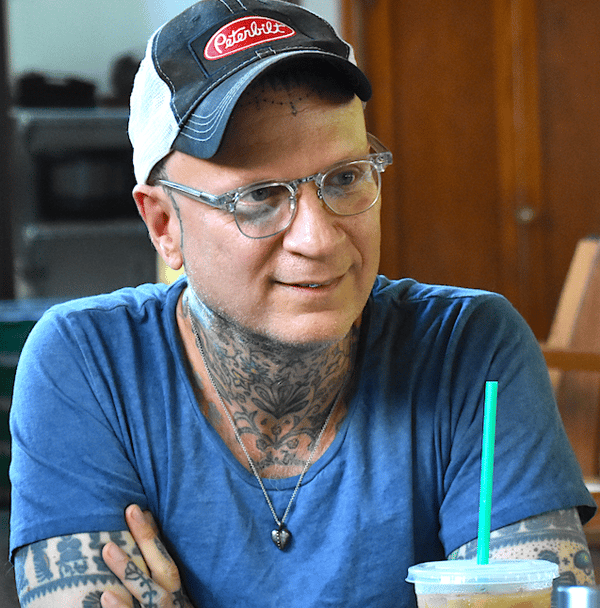The Delusions of Everyday Life, or Learning to See Through Appearances
Dharmapunx NYC
josh korda
4.8 • 886 Ratings
🗓️ 7 December 2017
⏱️ 59 minutes
🧾️ Download transcript
Summary
Transcript
Click on a timestamp to play from that location
| 0:00.0 | Hello, I hope you enjoy this recording and consider that in accordance with the Buddhist tradition, |
| 0:05.1 | my talks are offered entirely without charge and supported by donations only. |
| 0:10.0 | Please feel invited to stop by DmaPunks NYC.com, that's spelled with an X, |
| 0:16.5 | to check out a chapter from my book Unsubscribe, which arrives November 2017, and thank you. |
| 0:29.0 | Many of the weeks I give talks on the intersections of psychology with the |
| 0:37.6 | Darma and very often that entails |
| 0:41.8 | discussing how early childhood infancy relational experiences, i.e. the way we interact |
| 0:49.2 | with our caregivers and our families create traits that will endure for much of our lives. |
| 0:59.4 | And I talk about the tools that help us address attachment styles and work issues that tend to be |
| 1:07.0 | essentially structured by again those early experiences in life. I should note that it's probably 50% of our traits and our |
| 1:18.1 | ingrained perceptions and behavioral patterns are set not only by early attachment or what we call nurture, but the other 50% would be produced by natural selection slash evolution and that is what falls under the rubric of nature. |
| 1:36.8 | So it's neither nature nor nurture, it's both that produces the attributes that we |
| 1:45.0 | work with in our lives. |
| 1:47.0 | Now you might well wonder how do we tell or discern |
| 1:50.0 | which attributes are attributable to our early life experiences versus which attributes are probably the product, |
| 2:01.0 | 1.8 million years of the evolution we've had since the first version of Homo sapiens. |
| 2:09.4 | I think Homo erectus or something like that happened 1.8 million years ago. |
| 2:14.6 | So roughly the way you would tell is that traits that are different in people, different in cultures, different in people, |
| 2:23.0 | in cultures, different in family systems, |
| 2:26.8 | would certainly be nurture, would be those traits |
| 2:31.0 | produced by our early life experiences. |
| 2:33.0 | On the other hand, traits that are universal and are largely operated by limbic structures would be those traits we would call natural or the product of natural selection. |
... |
Please login to see the full transcript.
Disclaimer: The podcast and artwork embedded on this page are from josh korda, and are the property of its owner and not affiliated with or endorsed by Tapesearch.
Generated transcripts are the property of josh korda and are distributed freely under the Fair Use doctrine. Transcripts generated by Tapesearch are not guaranteed to be accurate.
Copyright © Tapesearch 2025.

